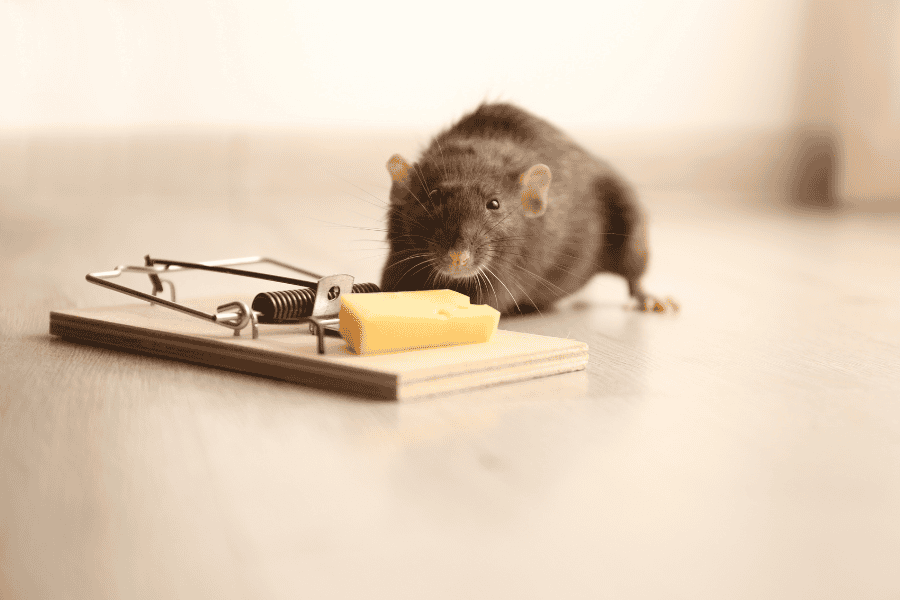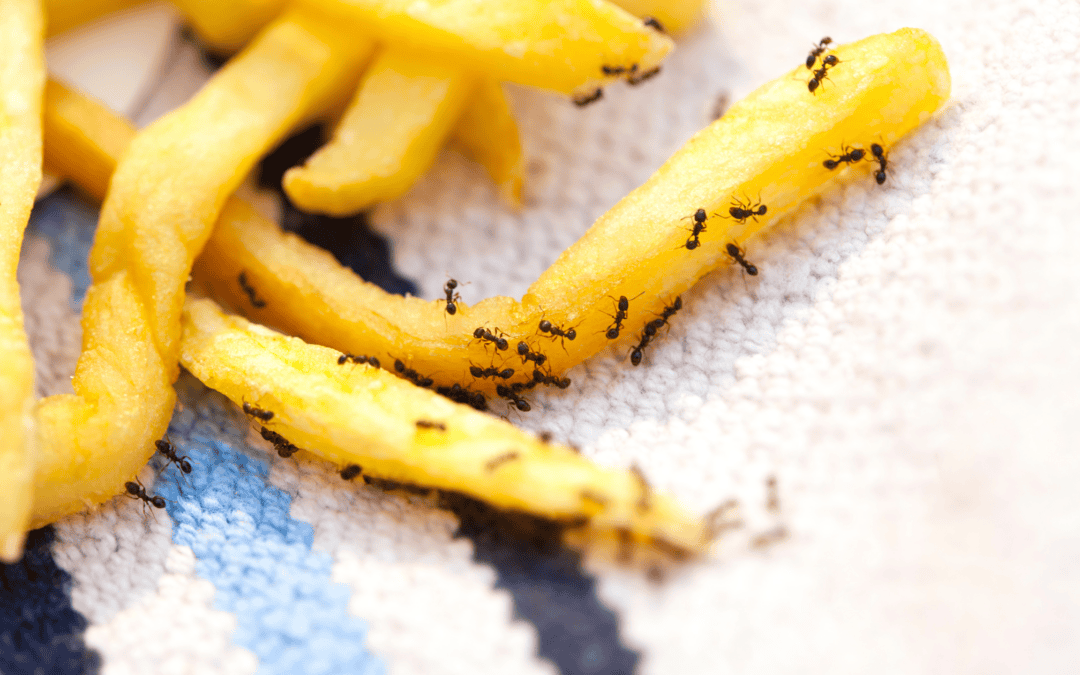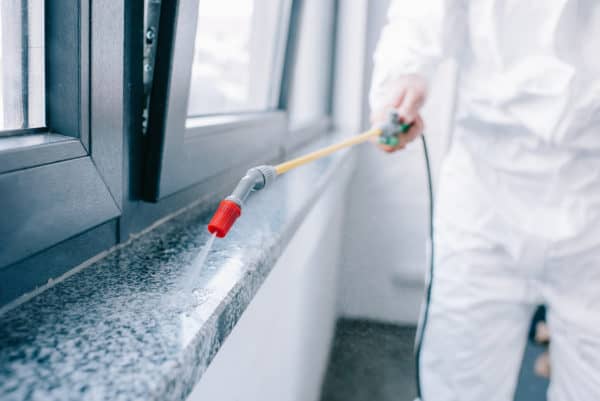READY TO GET STARTED?
REQUEST A FREE ESTIMATE
Fill out the form below or call (888) 466-7849 for a free, no-obligation estimate.

Pest control is an essential part of maintaining a clean and safe home, especially when faced with recurring pest problems. When unwanted pests invade, the first instinct for many homeowners is to search for quick and effective solutions. For some, this means tackling the issue themselves with do-it-yourself (DIY) pest control methods, while others prefer to call in professional pest control services.
Both approaches come with their own advantages and drawbacks, and understanding them can help you make an informed decision about which method works best for your specific pest problem. In this article, we will explore the pros and cons of DIY pest control and professional pest control, highlighting factors like cost, effectiveness, safety, and long-term results.
One of the biggest advantages of DIY pest control is the potential cost savings. Professional pest control services can come with significant fees, which can add up over time. Many homeowners prefer to buy pest control products and handle the issue themselves, believing it will save money in the long run.
DIY pest control products, such as sprays, traps, and bait systems, are often available at affordable prices at local hardware or home improvement stores. Additionally, online retailers provide a wide variety of pest control solutions, making it easy to find what you need at a reasonable cost.
When you spot pests in your home, immediate action is often necessary to prevent further damage or infestation. DIY options allow homeowners to take action right away without waiting for a professional service to arrive.
With DIY pest control solutions readily available in stores or online, you can quickly eliminate pests like ants, spiders, or cockroaches as soon as you notice them.
Handling pest control yourself offers the convenience of addressing the problem on your own schedule. You can apply treatments at any time, without needing to coordinate appointments with a pest control company.
For small, isolated pest problems, DIY methods are usually sufficient and allow homeowners to manage minor infestations with ease.
For homeowners who are environmentally conscious or prefer natural alternatives, DIY pest control provides greater control over the types of products used. You can choose non-toxic or organic pest control products if you’re concerned about the chemicals found in conventional pesticides.
This flexibility ensures that you are using methods that align with your personal preferences and household safety standards.
One major drawback of DIY pest control is that most homeowners lack the experience and expertise of professional pest control technicians. Identifying the exact pest and knowing the most effective way to eliminate them requires specialized knowledge. For example, a termite problem is far more complex than an ant infestation, and using the wrong products or methods can make the situation worse.
Without proper training, DIY solutions may only provide temporary relief from a pest problem rather than a long-term solution. In more serious cases, pests may return or even become resistant to certain treatments.
Many over-the-counter pest control products contain chemicals that can be harmful to humans, pets, and the environment if not used correctly. Misuse or overapplication of these products can lead to health risks, including respiratory issues or skin irritations.
Professional pest control services are well-versed in handling hazardous substances and take proper precautions to ensure the safety of your household. DIY methods, on the other hand, may expose you and your family to unnecessary risks if instructions aren’t followed precisely.
While DIY pest control solutions can be effective for minor issues, they often fall short when dealing with more severe infestations. For example, a large rodent problem or a bed bug infestation requires more specialized knowledge, tools, and products that most homeowners don’t have access to.
DIY methods may not address the root cause of the problem or prevent future infestations. Without a thorough understanding of the pests’ behavior, DIY treatments might eliminate visible pests without targeting their nests or breeding sites, leading to recurring infestations.
Pest control is not always a one-time fix. Many DIY treatments require frequent applications and monitoring to ensure the pests are completely eliminated. For busy homeowners, this can become time-consuming and inconvenient.
In contrast, professional pest control companies offer long-term pest control solutions that require less involvement from the homeowner.
When deciding between DIY pest control and professional pest control, it’s essential to consider the severity of your pest problem, your budget, and your comfort level with handling chemicals and treatments.
DIY pest control can be a cost-effective and convenient solution for minor pest issues, but it often lacks the expertise and long-term effectiveness of professional services. On the other hand, professional pest control offers more comprehensive pest control solutions and peace of mind but comes at a higher cost.
If you’re dealing with a recurring or severe pest infestation, it’s worth considering professional pest control services to eliminate pests and prevent future problems. For those looking for quick fixes or minor pest issues, DIY pest control may be a suitable option.
When searching for solutions, whether it’s DIY pest control near me or a trusted pest control company, understanding the pros and cons of each method will help you make the best choice for your home and family.

Dealing with pests in Auburn can be a challenging task for any homeowner. Whether it’s the persistent march of ants across your kitchen floor or the strange rustling of rodents in the attic, pests are not only a nuisance but can also pose health risks and cause property damage. When facing these unwelcome guests, homeowners often grapple with the decision of whether to tackle the problem with DIY pest control or call a professional pest control company. Here, we weigh the pros and cons of both approaches to help you make an informed decision.
Both DIY and professional pest control have their place in managing pest issues and by understanding the nature of your problem and weighing the pros and cons, you can choose the best approach for your home. Whether you opt to tackle it yourself or call in the pros, the goal is the same: a pest-free home that keeps you and your family safe and comfortable. If you’ve exhausted your DIY pest control methods and are still noticing more pests on your property than you’re comfortable with, call a pest control company near you for a free inspection and recommendations on the best treatment plan.

Summer is synonymous with warmth, outdoor fun, and unfortunately, pests. In Georgia, the hot and humid climate creates the perfect breeding ground for a variety of pests that can invade your home and yard. Understanding why summer is the peak season for pests, identifying common summer pests, and learning effective prevention tips are essential for maintaining a pest-free home. Here’s a comprehensive guide to help you manage and prevent summer pests.
Despite your best efforts, some pest problems require the expertise of a professional pest control company. In Georgia, where the pest population can be particularly persistent, regular pest management can make a significant difference. Here are some benefits of professional pest control services:
When searching for “pest control services near me,” look for a reputable company with positive reviews and proven results. A good pest control company will offer customized plans to suit your specific needs, ensuring your home remains pest-free throughout the summer and beyond.
Summer in Georgia brings with it an array of pests that can disrupt your home and outdoor activities. By understanding the common summer pests and taking proactive measures to prevent them, you can enjoy a pest-free summer. And remember, professional pest control services are always a reliable option to keep your home safe from unwanted invaders.

Spring marks the beginning of the season for many common household pests. Mice, ants, wasps, roaches, bed bugs, and more increase their activity when the weather warms up. While a pest sneaking into your home here and there is normal, how do you know when it’s time to call in the professionals? Here are 5 signs it may be time to call an exterminator.
A random pest sighting here and there in your home is normal. They can sneak in through open doors and windows or through the tiniest gaps and holes in the exterior of your home. They can also hitch a ride on luggage or boxes that are brought in from outside. There is a difference, however, between an occasional sighting and a daily presence. Seeing 2 to 3 ants in your kitchen once isn’t a big deal; seeing a trail of hundreds of ants going from the wall to the pantry is. Seeing one mouse outside in your yard isn’t a big deal; seeing multiple in your home, trapping several, or seeing the presence of droppings is. If the pest problem is escalating, it may be time for an exterminator.
Once you identify the pest problem, the next step is to try and get rid of them. Many homeowners prefer to try DIY pest control methods first before calling in a pro. If you continue to have a problem with pests despite your best efforts, it may be time to call an exterminator.
Pests can pose serious health risks to your family, your pets, and even your home. Termites can cause structural damage that can compromise the integrity of your house. Rodents are known to chew through electrical wires putting you at risk for a fire. Rodent feces contains harmful pathogens that can make your family sick. Cockroaches are known to trigger allergies and asthma. Some homeowners aren’t comfortable using DIY methods or have concerns about using over-the-counter chemicals around their children or pets. For these reasons, it may be time to call an exterminator.
Some pests are nearly impossible to eradicate on your own or require professionals to get rid of them. Bees are protected and must be relocated appropriately. Some bird species are protected, as well, and bird nest removal must be handled professionally. Roaches, termites, and bed bugs can be extremely difficult to eradicate on your own. If you have an issue with any of these pests, it may be time to call an exterminator.
When the signs of an infestation become too big to ignore, it may be time to call in a professional. Some common signs of pests in your home include:
If you have a problem with any kind of pest, contact a professional pest control company for an inspection to help identify what kind of pest you are dealing with, how they are getting in, and how to get rid of them quickly and safely.
Flowers and Plants That Attract Honeybees

The holidays are over and we can now welcome the New Year! Like many of us, we look forward to setting some New Year’s resolutions and goals! This year many of us will look forward to saving more money, exercising more, and even working on home improvements; although one resolution you might not consider that’s both easy and effective is pest-proofing your home!. Making sure your home is protected against pests will help to keep them out for the rest of the year while also helping you stress less about pests! Here are some easy and hassle-free ways you can keep your house pest free this year!
Kitchen Clean-Up
Pests love three things: shelter, food, and water. Unfortunately for us, they can find all of these things inside our homes. Keeping a clean kitchen throughout the year can help with two of these main factors – food and water. Make sure you always clean your kitchen after cooking and eating meals. Wipe down any leftover crumbs and spills, even in hard to reach places. Store food, including pet food, in airtight containers in your pantries. Every week try to sweep up your floors and vacuum to ensure that there isn’t missed food debris on the floors.
Seal Those Gaps
Pests only need the smallest gap to enter your home and infest! Ensure pests don’t get inside by inspecting both the exterior and interior walls of your home for any open areas. If a gap is found, tightly seal it up with caulk. Make sure to also check areas where your utilities and pipes come into the home for any gaps. Finally, use screens on doors and windows, making sure they are in good repair. If a hole is found, replace the door screens and windows as soon as possible.
Don’t Forget About Outside
Pest proofing outside the home is just as important as proofing inside. Pests love clutter and debris like fallen leaves. To help declutter, clean out your gutters of debris and consider installing gutter guards to help eliminate clogs and standing water. Similarly, rake up any leaves that have fallen throughout your yard. Be sure to also keep your firewood stored at least 20 feet from your home and elevate it. If you bring the wood inside, make sure to inspect it for pests. Trim your bushes and trees back from your home where they are not touching the sides of your house. This can help with keeping pests and wildlife creatures from entering your attic.
Call A Professional
Ringing in the New Year can sometimes feel overwhelming when thinking about all the goals we want to achieve. If you want to start out the year less stressed about pests, consider calling a professional pest control company. These professionals can set you up with a scheduled treatment and prevention plan so you can focus more time on doing the things you love.